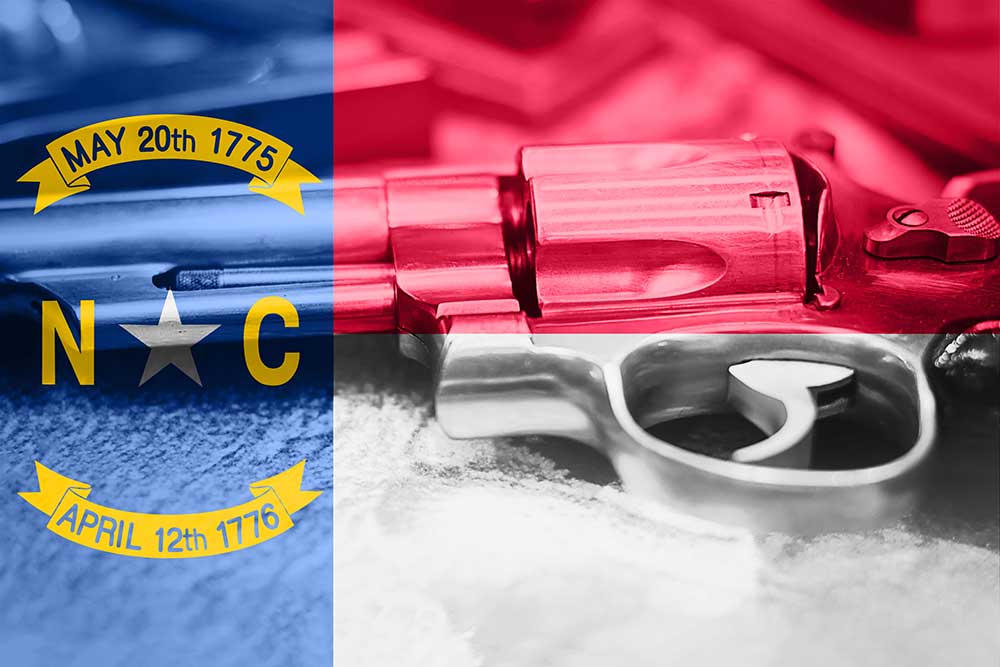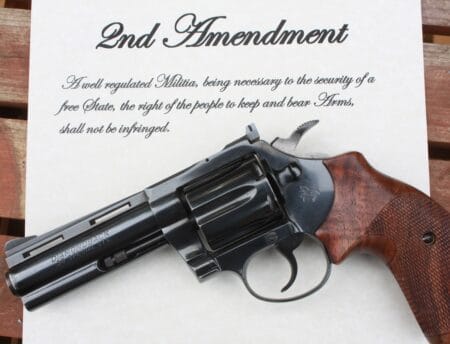North Carolina’s Constitutional Carry movement stands at a crossroads after lawmakers postponed a high-stakes vote to override the governor’s veto on September 22, 2025
Vote has been postponed. We will update with more information.
Do not let up. Keep hammering the phone lines.
Make North Carolina the 30th Constitutional Carry state!Ted Davis, Jr. – 919-733-5786
William Brisson – 919-733-5772
Brenden Jones – 919-733-5821
Karl Gillespie -… https://t.co/wEI8oNMK74— National Association for Gun Rights (@NatlGunRights) September 22, 2025
The postponement of North Carolina’s Constitutional Carry override vote represents far more than a routine legislative delay. Second Amendment supporters face a critical inflection point that could determine whether decades of unprecedented progress in expanding gun rights continues or grinds to a halt in traditionally gun-friendly states.
North Carolina’s Senate Bill 50, officially titled “Freedom to Carry NC,” has navigated a complex legislative path throughout the 2025 session. The bill was filed on February 4, 2025, and passed first reading in the Senate the following day. After committee review and amendments, the Senate passed SB 50 on March 20, 2025, with a vote of 26-18.
The House received the bill on March 25, 2025, where it underwent extensive committee review through May and June. The House passed SB 50 on June 11, 2025, by a narrow margin of 59-48, with 13 members absent. Notably, two Republican representatives, William Brisson and Ted Davis Jr., voted against the bill.
Governor Josh Stein vetoed the legislation on June 20, 2025, arguing it “makes North Carolinians less safe and undermines responsible gun ownership.” The Senate successfully overrode the veto on July 29, 2025, with a 30-19 vote. However, the House vote has been repeatedly postponed, first from July 30 to August 26, then to September 22, and now appears delayed indefinitely.
North Carolina represents a crucial test case for Second Amendment rights. The state already scrapped handgun purchase permits in 2023, demonstrating previous support for gun rights expansion. However, the sustained opposition to SB 50 reveals that even incremental expansions of gun rights face fierce resistance in states previously considered secure for Second Amendment advocates.
The razor-thin vote margins reveal the precarious nature of gun rights advancement. Republicans need a three-fifths majority of those present and voting to override the governor’s veto. With two Republican representatives already on record opposing SB 50 and ten others absent during the original vote, the override faces serious challenges based on simple arithmetic alone.
This situation demonstrates how a small number of defections can derail major Second Amendment initiatives, even when Republicans hold legislative majorities. Just because a politician has an “R” beside their name does not guarantee they will vote right on Second Amendment issues.
Each postponement allows additional time for gun control groups to pressure lawmakers and potentially flip votes against the override. The delay tactics represent a sophisticated strategy to defeat legislation without requiring a direct vote. As Gun Owners of America noted, this represents their “last chance this session” to achieve Constitutional Carry. The postponement strategy is particularly concerning because it shifts the burden of action to gun rights supporters while allowing opponents to work behind the scenes to kill this legislation without having a bad vote on their record that could be exploited during election season.
The Constitutional Carry movement has achieved remarkable success over the past quarter-century. Vermont stood alone as the only Constitutional Carry state from the nation’s founding until 2003, when Alaska became the second state to eliminate permit requirements for concealed carry]. The movement accelerated dramatically in the 2010s, with Arizona joining in 2010.
The real explosion came after 2015, when Kansas became the fifth Constitutional Carry state. From 2015 to 2019, 10 additional states passed Constitutional Carry legislation. The momentum reached unprecedented levels during 2021 and 2022, when nine states enacted Constitutional Carry laws in just two years. Today, 29 states have adopted Constitutional Carry, with Louisiana becoming the most recent addition in July 2024.
This transformation represents one of the most successful grassroots political movements in modern American history. In just over two decades, Constitutional Carry expanded from a single state to encompass more than half the nation.
Unless lawmakers step up, North Carolina risks missing the chance to join the majority of states that recognize permitless carry as a constitutional right.
Second Circuit Upholds New York State’s Sensitive Area Restrictions
About José Niño
José Niño is a freelance writer based in Charlotte, North Carolina. You can contact him via Facebook and X/Twitter. Subscribe to his Substack newsletter by visiting “Jose Nino Unfiltered” on Substack.com.







my guess is both sides are counting votes the delays could be good or bad